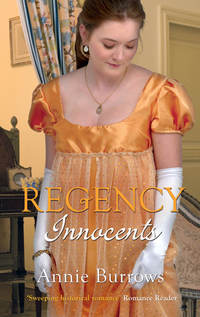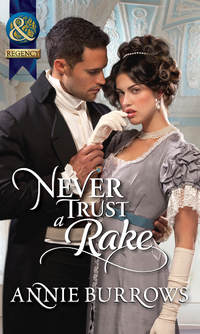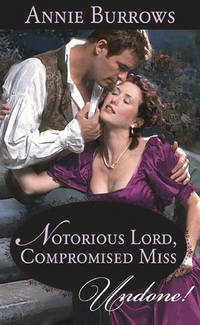
Полная версия
Regency Surrender: Passion And Rebellion
Mrs Podmore pursed her lips and shifted in her chair. ‘What I think,’ she said, setting her teacup down with a snap, ‘is that you are too liable to get the wool pulled over your eyes by people who are out to take advantage of you, that’s what I think. I can’t say I’m sorry she’s gone. But what I am sorry for is what people will say about you now. Why, you had to come back here all on your own. Which is not the thing, you know, not the thing at all.’
‘I hired a person from an agency in London for the journey home—’
‘Well, we all know how unsatisfactory she must have been, or you wouldn’t have sent her packing the moment you got here.’
‘No, that wasn’t why—’
‘A woman in your position must have a decent female companion, as I am sure I have told you before.’
‘Yes, you have,’ admitted Amethyst drily. ‘Many times.’
‘Well, then, you must see that the sooner you engage a proper, unimpeachable chaperon, the better. Oh. I think I may know just the person.’ She got to her feet. ‘I must hurry, or I might miss her. I do apologise for making this visit so brief.’
There was no need for an apology. Amethyst couldn’t believe how easily she’d got rid of her.
‘But I am sure you are tired after your journey.’
Not that it had prevented her from calling in the first place.
‘I can call again another time and fill you in with all the latest news of our little town. Not but what you will probably find it all terribly dull after the adventures you must have been having.’
Oh dear. Her lack of interest in whatever gossip Mrs Podmore wanted to share must have shown on her face. She really must take care to guard her expression better.
‘No, no, dear, I insist. Though I must say,’ she said tartly, ‘that travelling doesn’t seem to have agreed with you. You look positively wan. What you need now is a good wholesome English meal, followed by a good night’s sleep in your own bed. That will soon bring the roses back to your cheeks.’
They were returning already. Mrs Podmore couldn’t possibly have meant anything by that comment about sleeping in her own bed. It was only her conscience shrieking that everyone could tell she was a fallen woman now, just by looking at her.
Fortunately Mrs Podmore had already turned her back on Amethyst as she hurried to the door. Keen to get out and spread the news of Fenella’s marriage to a French count, no doubt. And if that weren’t enough of a coup for her, she’d also got the notion she was going to be able to interfere in some indigent female’s life by obliging her to come and work for Amethyst as a companion. If she was in such a hurry to find her, the poor woman must be attempting to escape Stanton Basset at some point today.
She hoped she made it.
Though she wasn’t sorry Mrs Podmore would be out and about disseminating the truth about Fenella. There had been enough unpleasant and unfounded gossip about Fenella doing the rounds of Stanton Basset.
At the mention of unfounded gossip her mind flew back, as it did so often since he’d told her, to the scurrilous rumour that Nathan had heard about her. About her having a child out of wedlock.
There had been something niggling at the back of her mind, something about those days, that she hadn’t been able to put her finger on, until this moment, when she’d seen how keen Mrs Podmore was to spread her bit of gossip. Right after she’d kept her own mouth shut about Monsieur Le Brun, out of consideration for his feelings.
The kind of story that Nathan had heard about her was meat and drink to people like Mrs Podmore. If it had reached the ears of someone like that, people would have been twitching their skirts aside as she walked past.
But they hadn’t. She’d had no idea what she was supposed to have been guilty of, until just a few days ago.
It meant that Nathan couldn’t have repeated the story, not to anyone. Nor could his friend, Fielding.
But Nathan had been furious. He’d wanted to hurt her. He’d told her as much. So, why hadn’t he taken the final step and destroyed her completely? He’d had the power to do it. All he would have had to do was repeat what he’d heard and, even though it wasn’t true, the damage would have been done. People would always wonder. ‘No smoke without fire.’ How often had she heard that, in connection to rumours, particularly salacious ones?
What had made him hold back from taking that final step?
One answer came to her mind immediately. It was the conclusion her aunt would have leapt to. That he wouldn’t have wanted anyone to know he’d been deceived by the kind of woman he’d thought she’d been. That it was all a matter of preserving his pride.
But from deep within rose another reason to account for his reticence. A reason that made just as much sense. That he’d done it to shield her from the punishment society would have meted out, had the story been made public. He hadn’t wanted to be responsible for blackening her name and ruining her reputation.
‘Aunt Georgie, I don’t think all men are completely bad,’ she said out loud. The room seemed to frown at her. Every item in it was deeply ingrained with memories of her aunt, that was the trouble, and every stick of furniture now reproved her for speaking such heresy.
Though she was trembling, she said it again.
‘Men aren’t necessarily bad, just because they’re men. I think they make mistakes, and get hurt and lash out, just the same as we do. And some of them,’ her voice dropped to a whisper, ‘some of them...might even be good.’
Chapter Fourteen
The sooner she left this place and rejoined Fenella and her family in Southampton, the better.
When he’d come in to collect the tea tray, Adams had interrupted her informing her aunt’s chair that she thought Fenella was jolly lucky to have found a man like Monsieur-le-Compte-de-Somewhere-Brown. ‘Fenella brought nothing to the marriage but a whole pile of obligations,’ she’d been insisting. ‘But not only did he not seem to mind, he’d actually fought for her. And Sophie, too. You should have seen his face the first time she called him Papa. He loves that little girl. He really does.’
Adams had looked round the room, as though searching for whomever she’d been talking to, though he must have known Mrs Podmore had left, or he wouldn’t have come in to clear away.
He’d probably come to the conclusion that she was well on the way to becoming as odd as her aunt had been, walking round the room haranguing the furniture.
No, she sighed, her aunt’s house was not a healthy place for her to live. She’d already begun to talk to herself. What next would she do?
Well, it wouldn’t come to that. She walked briskly back to her study, drew out a fresh sheet of paper, trimmed her pen and set the process of the move in motion.
* * *
There had been many decisions to make. What to sell? What to put away in storage? What to take with her? And how was she going to implement her plan to improve the lot of her workforce from Southampton? Without anyone knowing that she was the one doing it? Practical issues such as these had kept her fully occupied for the next couple of days. During the hours of daylight, at least. But at night, as she had lain in bed, she could not ignore the creeping sense of loneliness and failure that only frenetic activity could keep at bay.
By the end of the week she’d begun to suspect Adams was developing a sort of fatherly concern for her. Or perhaps fatherly was not the right word, she grimaced as she tied up the ribbons of her Sunday bonnet. Her father had never shown concern when she’d been downcast. He’d always berated her for not displaying proper Christian gratitude, for not always giving thanks in everything. He’d never brought her tea and biscuits at regular intervals, which Adams now did if she lost track of time whilst working her way through the backlog of reports stacked on her desk. Or looked at her with such grave concern when she sat staring into space during meal times, forgetting to keep on raising the fork to her mouth, then nudged a favourite dish towards her, suggesting that cook would be disappointed if she didn’t at least try it.
‘Adams,’ she said as she tugged on her gloves, ‘I’ve come to a decision. I shall be leaving Stanton Basset as soon as I possibly can. But I wondered if you would like to carry on working for me.’
He opened the door for her without betraying any emotion whatever.
‘It will be a bigger house, more responsibility, better wages,’ she said as she preceded him out of the house.
‘And to where, may I ask, are you planning to move?’
Did he have good reason for wanting to stay in the area? She frowned. She had never wondered about his private life before. Or considered he had a right to one. He’d always just been there. A servant. Not a real person.
She’d slipped into the habit of treating him exactly the same as her aunt had always done.
Well, those days were over.
‘Somewhere near Southampton. To be close to Fenella.’
‘And Miss Sophie,’ said Adams, his face softening in what looked like sympathy.
‘Yes. Of course, I will understand if you have...ties to this place and do not wish to move away. But I shall be sorry.’
He gave her a nod as he opened the garden gate for her. ‘I shall give the matter serious consideration,’ was all he would say.
Well, it was a big decision for anyone to make. He’d been here ever since she could remember. And not everyone liked change. Particularly not when they got to his age.
‘If you don’t come with me and would rather retire,’ she said, ‘I will make sure you have a decent pension.’
‘That is...generous of you,’ he acknowledged. ‘I had hoped, when your aunt passed, that she might have...’ He trailed away. But he had no need to elaborate. Her aunt had not left any of the servants anything.
She shook her head at the slavish way she’d moulded her behaviour to please her aunt. More evidence of her desperate need for approval, she sighed. Well, it had to stop. She wasn’t going to live to please anyone else, ever again. She would live by her own beliefs, act according to her own principles and stand on her own two feet.
* * *
Her own two feet carried her all the way to church without her mind having to direct their way. They carried her to the pew where she’d always sat without her having to think about that either.
The service commenced. She got to her feet, then dropped to her knees in all the appropriate places, but she was only going through the motions.
Because she couldn’t get over the fact that she’d been such a fool. She’d lost Nathan because she’d listened to her aunt’s warped views, rather than her own heart.
She’d been happy, in Paris, with him, she sighed. He’d helped her to unfurl, like a tightly defensive blossom in the warmth of spring sunshine. He hadn’t tried to dominate her, or change her. He’d just made her feel...first beautiful, then intelligent, and then as though she had an interesting personality. Oh, why hadn’t she remembered any of that when he’d said he loved her? Why hadn’t she been brave enough to take that leap of faith? Why had she listened to the nasty, suspicious voice in her head telling her he was only interested in her wealth?
She screwed her eyes shut as she repressed a groan. The whole point of travelling to Paris in the first place had been an attempt to...to break free. Hiring Fenella had been her first act of independence and defying her father over the will had been her second.
It was harder to break free from patterns of thought, she realised, than outward behaviour. She could leave Stanton Basset, buy fine clothes and even take a lover. But inside she was still the bewildered child who’d been denied unquestioning love so often that she’d grown the equivalent of a hedge of thorns round her heart.
She sank on to the pew, shutting her hymn book with a chill certainty. She was going to shrivel up and die alone because there would never be, had never been, any other man for her but Nathan.
Even now she knew the very worst of him, it made no difference. As soon as she’d calmed down and had time to reflect, she could see exactly why he’d done every bad thing he’d done. He’d tried, for years, to please his exacting father and then to maintain his honour whilst chained to a woman who despised him. Until he’d got to breaking point and lashed out in rage and pain. Just as she’d done when her own father had demonstrated his lack of faith in her.
But when he’d come to make a clean breast of it, to ask if they could make a fresh start, instead of reaching out to grasp at the chance of happiness, she’d scuttled back behind her hedge of thorns. Which no man could penetrate, without risking getting cut to ribbons.
There wasn’t a man alive who could possibly love her enough to do it.
The congregation was stirring, moving towards the door. She could scarcely believe that the service was over without her having taken in one word of it. But everyone else was already streaming out into the churchyard where they would mill about and gossip for at least half an hour.
She fumbled in her reticule for a handkerchief to blow her nose as tears stung her eyes. How on earth was she going to be able to endure the collective inquisition the citizens of Stanton Basset were bound to subject her to, when she was so raw she felt as though someone had been scouring her insides with a scrubbing brush?
The same way she always had, she supposed. With a series of terse, cutting words that would make them all retreat lest she turn the rapier sharpness of her tongue in their direction.
Oh, God—she deserved to end up alone!
‘My dear Miss Dalby, do excuse me, but there is someone I would love you to meet.’
All but thick-skinned Mrs Podmore, she sighed. Her unshakeable belief in herself rendered her impervious to even Amethyst’s barbs.
She stuffed her handkerchief back in her reticule and prepared herself to meet the poor woman Mrs Podmore had no doubt cajoled and bullied into applying for the post of her companion. She didn’t want to frighten the poor creature by unleashing her own pain in a display of venom.
Besides, it was herself she was cross with. If she’d had her wits about her she would have been first out of the door and marched straight down the path for home before anyone could waylay her. But it was too late now. She was well and truly trapped, with only herself to blame.
‘I did not have time to tell you our most interesting news,’ panted Mrs Podmore, ‘when I visited you the other day. But now I should like to introduce you to the newest resident of Stanton Basset.’ She stepped aside and waved her hand to summon the person who’d been hovering behind her, rather in the manner of a conjuror producing coins from thin air.
‘Allow me to present Mr Brown,’ she said, as Nathan stepped forwards.
Nathan? Here in Stanton Basset? Amethyst could not have been more stunned if Mrs Podmore had conjured up a unicorn from behind her velvet-and-bombazine bulk. She was glad she was still seated or her legs might have given way.
‘I am pleased to meet you, Miss Dalby,’ said Nathan suavely. ‘I have heard so much about you.’
‘Mr...Brown?’ She gazed at him in bewilderment. And excitement that warred with trepidation.
‘Mr Brown is an artist,’ said Mrs Podmore, completely oblivious, as usual, to the effect she was creating in her current victim’s breast. She was far more interested in having just trumped Amethyst’s foreign count, who nobody would ever see, with a genuine, visible, novelty. ‘He declares he has fallen in love with the charm of the place and intends to make a stay of some months, capturing it all on canvas.’
‘An artist,’ said Amethyst weakly. So he wasn’t trying to conceal everything about himself.
‘Oh, you need not be alarmed. Mr Brown is quite the gentleman. He has taken a lease on old Murdoch’s place.’
‘Indeed?’
Amethyst’s brain finally emerged from the state of shock that seeing Nathan standing in the aisle of St Gregory’s had induced, and started coming up with questions. Why had he hired such a massive old mausoleum? How had he been able to afford it? And why was he going by the name of Brown?
And, more importantly, why was he here?
Her heart skipped a beat. Monsieur Le Brun had declared that he would have followed Fenella to England, to continue courting her. Was this what Nathan was doing?
Or was she clutching at straws?
‘How...how long have you been here?’ It was the one question she could safely ask. The kind of thing one stranger might say to another upon their first introduction. For if he was going by the name of Brown, and getting Mrs Podmore to introduce him to her, then he clearly didn’t want anyone to guess they already knew each other.
‘Almost a month, now,’ said Nathan.
A month? That meant he must have left Paris almost immediately after she’d turned down his proposal. No wonder he hadn’t called on her. He’d been on his way here.
But why? Not that she could ask him that, not here.
Nor could she sit staring at him like this. It wasn’t seemly.
‘If you will excuse me,’ she said, getting to her feet. ‘I really must be getting home.’
‘Perhaps you will do me the honour of permitting me to call on you some time,’ said Nathan. And then, with a swift sideways glance at Mrs Podmore, continued, ‘You have a very interesting face. I should like to paint you.’
‘And I have told him that if anyone in this town is likely to be able to afford such an extravagance, it is you, Miss Dalby. From what I hear,’ said Mrs Podmore with a twitch of her brows.
Her stomach roiled in reaction. The whole town had buzzed with the tale of her father fighting the lawyer over her inheritance. And though nobody knew for sure how much was at stake, they’d definitely overheard him prophesying she’d fritter her entire fortune away within a twelvemonth and have to crawl back to him for forgiveness. Because he’d done so in the voice he normally employed for booming hellfire sermons from the pulpit.
‘And I am sure you will agree that we should do what we can to support burgeoning talent, the kind that Mr Brown possesses.’ Mrs Podmore leaned forwards and confided, ‘He is a most interesting addition to our town, my dear. Quite the gentleman. Much more preferable as a tenant of the Murdoch place than some we might be unfortunate enough to get.’
‘Yes, yes, of course,’ she said, making for the door as fast as she could.
She didn’t feel as if she could breathe properly, even once she’d got outside. She wasn’t going to let Mrs Podmore’s assumptions spoil whatever chance there might be with Nathan. He couldn’t have known about her wealth before he’d come here. He’d come here because he’d meant what he said.
He had.
And anyway, even if he had since found out about her money, hadn’t she already decided she didn’t care? If Nathan had come here to try to win her, then she wasn’t going to let any consideration keep them apart. She’d just spent the most miserable weeks of her life berating herself for not accepting any of his proposals. She most certainly wasn’t going to turn down any more.
If he’d really come here to propose again.
Yet why else would he be here, if not to offer for her hand again?
A cold, suspicious voice, that sounded very much like her aunt, whispered, He could be planning to blackmail you.
She bowed her head into the sleet, which had started some time during the service, and marched doggedly on, though every breath she took made her chest ache, it had gone so cold.
No—she wasn’t going to believe Nathan would do such a thing. Why, he’d had her portrait, which he could have used to attempt to coerce her into marriage, or even blackmail her for money, but he hadn’t. He’d just handed it over without making any demands at all.
He’d had the chance to blacken her name ten years ago, too, and hadn’t taken it. He was too decent.
Nathan Harcourt? The man whose career was punctuated by scandal and failure?
Yes, him. He was a decent man. Deep down, where it mattered. He’d had good reasons for acting so badly. He’d been devastated by the lies they’d told him. He’d drifted into a career he hadn’t wanted and a marriage that had been like a prison. No wonder he’d broken free the only way he could.
You’re making excuses for him.
Perhaps she was. And perhaps that made her a foolish, lovestruck woman.
But she didn’t care. She was done with assuming the worst of everyone.
She would wait until he’d called, before deciding anything. Hear what he had to say, and then...
Then what?
She didn’t know, God help her. She’d just spent the week deciding how she was going to cope without him. Made all sorts of resolutions about striking out in a new direction.
If he really was here to make her another offer, she would gladly toss every single one of her plans out of the window.
And if he wasn’t...
If he wasn’t, then she’d just have to deal with it.
* * *
She barely slept a wink that night.
And it took her an age to dress the following morning. She’d never found her choice of clothing so important before. Pride wouldn’t let her wear something that would make her look too eager, just in case he hadn’t come here to propose again. But she didn’t want to dress so soberly that he would take one look at her and think she was going to turn him down, again, either.
In the end, she donned the gown she’d bought for Fenella’s wedding. Since he had never seen her in it, it wouldn’t have any associations which might put ideas into his head. And it was both suitable for the current weather, being made of fine merino wool, and having long sleeves, yet pretty enough, with its scalloped hem and embroidered detail round the neckline, to make her seem approachable. She hoped.
* * *
She had barely nibbled on her toast at the breakfast table, yet she’d managed to bite her nails to the quick by the time Adams came to her study—where she’d been pacing up and down rather than making even a token pretence at shuffling papers round her desk—to inform her that she had a visitor.
‘A gentleman,’ he said, with a slight inflection on the word which suggested he very much doubted it. ‘He claims to have made an appointment. And says his name is Mr Brown.’
How perceptive Adams was. No wonder her aunt had kept him on when she could have saved a fortune by hiring a female as housekeeper to do more or less the same job.
‘You are correct upon all counts,’ she said, causing one of his eyebrows to quirk, just a fraction. ‘He was introduced to me, at church yesterday, as Mr Brown and I did agree to see him.’
The eyebrow rose just a fraction more.
‘And, no, I do not think he is a gentleman either.’
His face returned to its proper state of butlerish blandness.
‘Shall I bring refreshments to the morning room? I took the liberty of showing him in there, rather than leaving him cluttering up the hall.’
In spite of her nerves, Amethyst couldn’t help smiling at this restrained display of humour.
‘Yes, please,’ she said. ‘Tea would be most welcome.’
Her mouth had gone very dry. And going through all the ceremony of pouring and serving would at least give her something to do if the interview didn’t go the way she hoped.
‘Tea. Of course, miss. He looks just the sort of man,’ said Adams with a perfectly straight face, ‘to enjoy drinking tea in the middle of the day.’
And with that last caustic comment upon the character of a man who had come calling upon a single lady when everyone knew she didn’t have a chaperon, he bowed himself out of the room.
And then, since there was no mirror in the study she hastily checked her fractured reflection in the multiple panes of the glass-fronted bookshelves, one last time, before going to meet Nathan. Although she’d checked it every few turns of the room, so knew exactly what she looked like. It was just that it was hard to credit she looked so neat and tidy when inside she felt as though she was coming unravelled.








